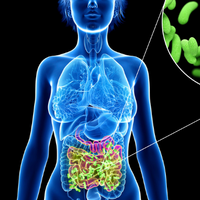What is the Gut-Brain Axis?
Most of us have heard of the phrase "butterflies in your stomach" or a "gut-wrenching sensation" after an emotional experience. These aren't just sayings though. Healthcare professionals have long studied the connection between the brain and your stomach which is regularly referred to as the gut-brain axis.
After years of research, scientists are steadily coming to a better understanding of the relationship of the gut-brain axis as well as how the gut microbiome works.
Gut-Brain Axis – How does it work?
There is a two-way communication between the gut and your brain. In fact, they are connected via a nerve known as the vagus nerve. Besides that, the gut and the brain are connected by other functions in the body such as neurotransmitters and chemical messengers.
Additionally, there's the gut microbiome that fulfills the connection. This is because the microbes within the gut communicate directly with the brain. Just how this gut microbiota sends out signals has long been the source of research.
There are some studies that suggest perhaps the microbiota indirectly influences the immune responses through the central nervous system.
Because of that, there's an intricate connection with the gut-brain-microbiome axis. So, if something goes wrong, you're going to feel it.
Digestive and Mental Health Issues
Disruptions with the communication between the gut microbiota, the gut itself, and the brain will be felt in various areas of your body. This can lead to digestive issues or aggravate problems you already have.
Feeling stressed? Then you may also feel some pain in your stomach, nausea, or bowel complications. This is due to your body not reacting properly to the stress at hand and, instead, it winds up unwittingly attacking itself.
Your gut's natural functions are altered, so if you have something like IBS, you can experience flare-ups. My focussing on improving your gut health and microbiome you can have a profound impact on your physical and mental state.








0 comments